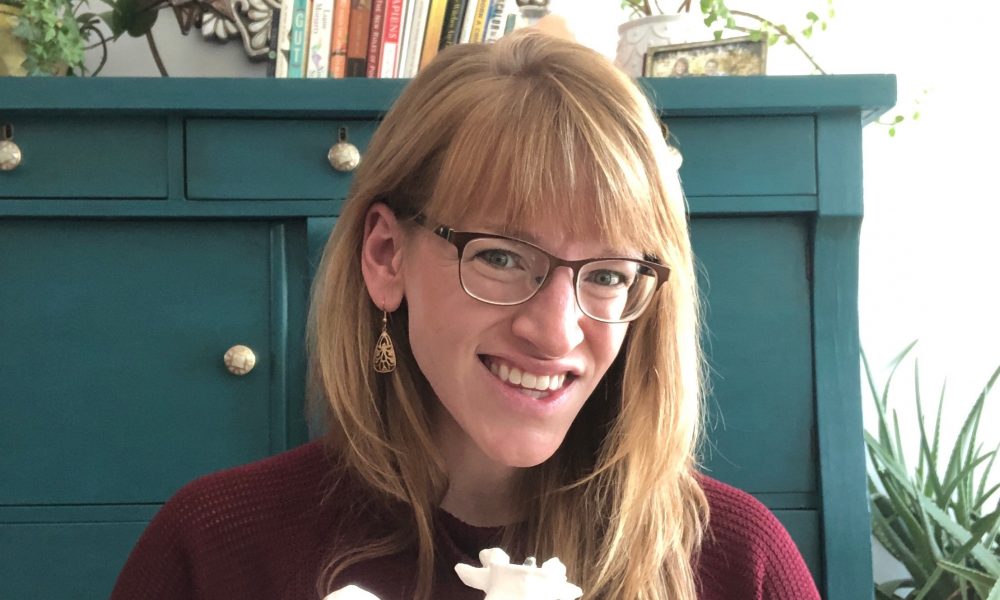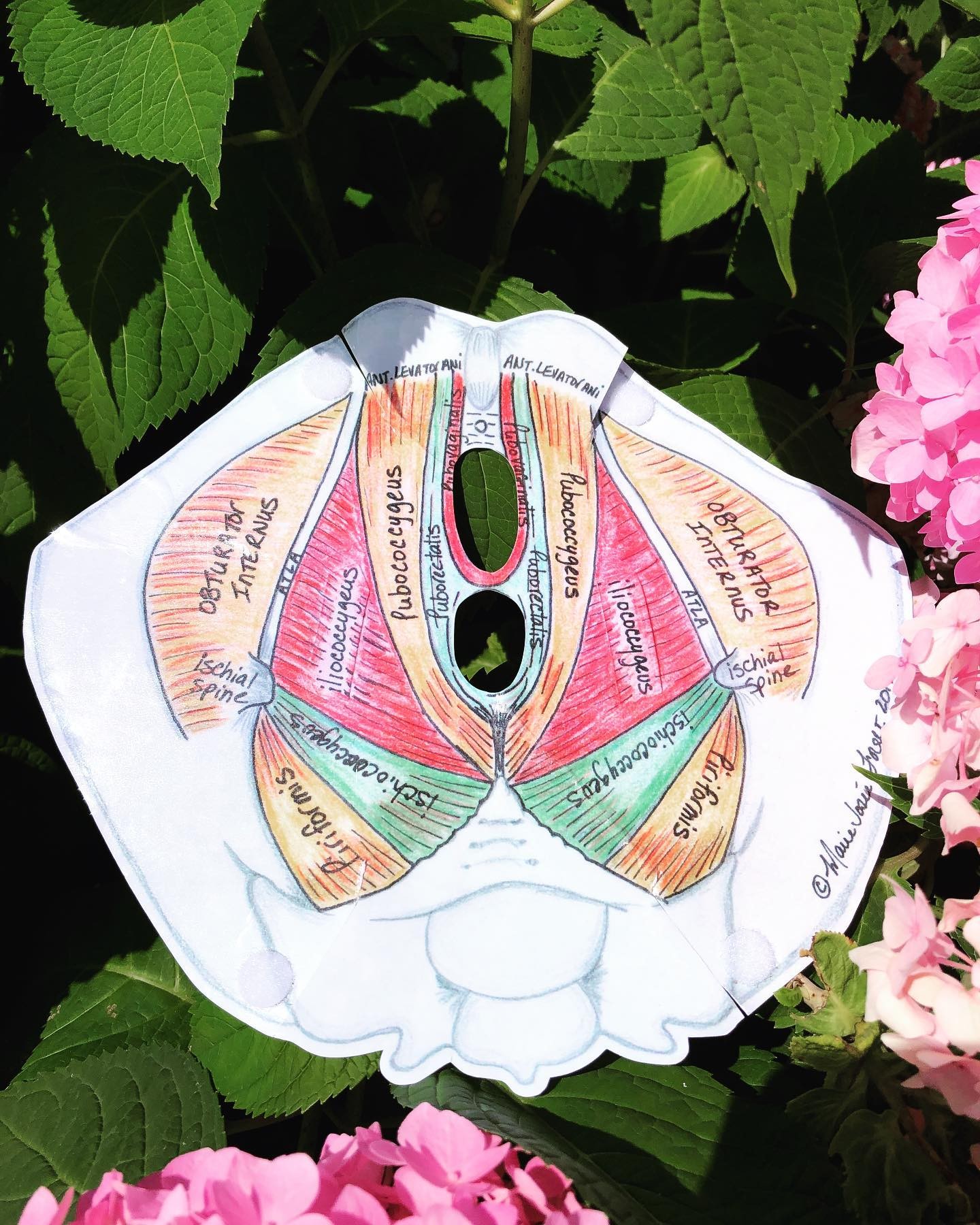

Today we’d like to introduce you to Kate Schumacher.
Kate, we appreciate you taking the time to share your story with us today. Where does your story begin?
I knew early on in my graduate school education that I wanted to practice in the realm of pelvic health. As an occupational therapy student, I was fortunate to shadow a pelvic floor therapist and witness firsthand the vast improvements experienced by the clients in her care. Graduate school eventually came to an end, follow by board exams and licensure. As a struggling student weighed down by student loans, I accepted the first therapist position that was offered to me. Years passed, and I found happiness (and a paycheck) working with geriatric patients. COVID-19, however, changed all of that. Forced to step back and work remotely, I found time to examine my life choices and indulge my passions. The isolation enabled education, allowing me to pursue advanced courses in pelvic health while exploring the idea of entrepreneurship. My private practice, Peaceable Pelvis, was born during the pandemic, and I enthusiastically began serving clients in the community.
However, it wasn’t until I experienced pregnancy and postpartum that I fully understood the gaps in our existing healthcare system regarding treatment of mothers before, during, and after birth. I became pregnant with my first child in 2021, and as a healthcare professional, I felt well-equipped to manage the changes my body was undergoing. However, as a layperson, I wondered how would I know what questions to ask? Why weren’t my providers educating me regarding my overall health and expectations for pregnancy or postpartum? Each prenatal visit resulted in disappointment, and ultimately elected to birth my son at home with a midwife, an experience that left me feeling empowered while equally cared for.
I emerged from the fourth trimester with a fueled passion for pelvic health as well as additional certifications to serve pregnant and postpartum clients. I strongly believe that pregnant and postpartum clients are deserving of greater care and education beyond the standard care that is currently provided within our medical system. I aspire to challenge the conversation about what should be considered “normal” and to improve the quality of life for Northern Michigan women through education regarding their pelvic health. While becoming a parent certainly comes with its share of sacrifices, a mother should never have to sacrifice her health or wellness in undergoing this journey. The normalization of pelvic pain, uncomfortable sexual experiences, or bladder and bowel dysfunction simply because “this is what happens after you become a mom” hinders quality of life for the new mother and, therefore her capacity to serve in her valued roles. I aim to offer a healing space where women feel their needs and concerns are heard and addressed.
Can you talk to us a bit about the challenges and lessons you’ve learned along the way? Looking back, would you say it’s been easy or smooth in retrospect?
Struggles along the way have included challenging the narrative of who can practice as a pelvic floor therapist. Traditionally, pelvic floor therapy has been practiced by physical therapists. This specialty is an emerging practice area for occupational therapists, only recently having been recognized by the American Occupational Therapy Association. I often find myself explaining or even justifying my level of education or experience. Occupational therapists and physical therapists are equally capable of addressing pelvic floor dysfunction but may utilize a different approach. Because this is an emerging practice area for occupational therapists, I have to be more deliberate about seeking mentorship and continuing education. My mentors are not practicing in the room next door but instead are available virtually. It can feel, sometimes, as though I am practicing “on an island”.
Thanks for sharing that. So, maybe next you can tell us a bit more about your work?
As a pelvic floor therapist, I serve clients who experience bladder leakage, bowel dysfunction, pelvic pain, abdominal diastasis, and pelvic organ prolapse. I am passionate about preparing pregnant clients- both physically and mentally- for the act of childbirth. The most rewarding part of my career, however, is providing care for mothers in their postpartum period. If we consider that postpartum is “forever” after the act of childbirth, then 90% of the clients I serve fall into this category. I believe that my clients should be cared for and empowered to understand the magnitude of strength and resiliency that their bodies demonstrate during pregnancy, birth, and recovery. In a medical system where mothers are sent home from the hospital after birth, to be seen by their provider only once at six weeks postpartum, I hope to offer insight and increase awareness 0f what recovery from childbirth should ideally look like. What I am most proud of is also what sets me apart from others in that I am the first practitioner to offer pelvic floor therapy services on a mobile basis. While I do offer office space, I also meet my clients where they are, especially if they are home caring for littles or recovering from childbirth. I hope that in doing so, I improve access to pelvic floor therapy services and reach clients who would otherwise be unable to receive treatment.
The crisis has affected us all in different ways. How has it affected you, and any important lessons or epiphanies you can share with us?
I don’t know if it is so much a lesson as it is an observation, which is that my clients have experienced an overwhelming amount of stress, which often manifests itself in tight muscles and pelvic floor dysfunction. Also, because of COVID-19, most childbirth classes and momma+me classes were cancelled or became virtual. Most of them still are. Many of my pregnant and postpartum clients are missing the community that is so desperately needed during this formative life stage.
Contact Info:
- Website: www.peaceablepelvis.com
- Instagram: peaceable_pelvis



Image Credits
Tyler Franz











